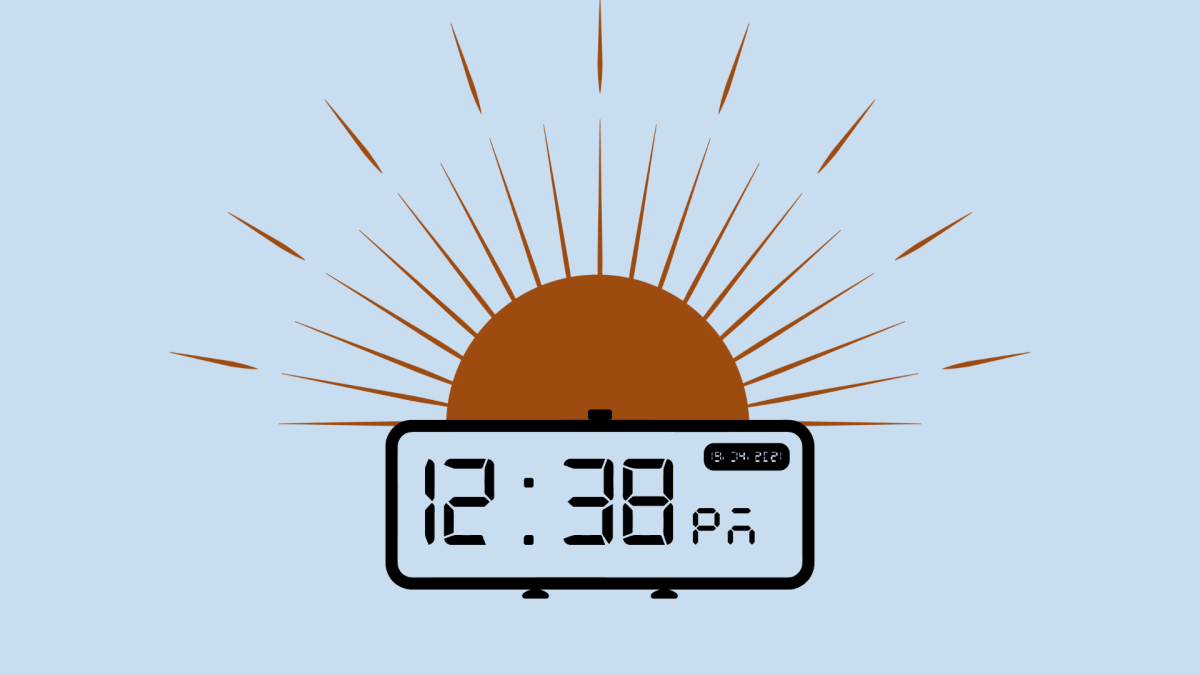Have you ever woken up from a deep slumber, looked out your bedroom window, and realized it’s still dark outside? You turn on the TV while making your cup of coffee and notice the headline “Americans Switch The Clocks For Daylight Savings.” You groan and roll your eyes as you go to move all the clocks in your house an hour forward. All of a sudden, you feel thrown off. Your sleep pattern changes and your days seem less productive. Daylight savings time has thrown off your entire schedule!
People live in the standard time zone from the beginning of November to the start of March. People move their clocks an hour forward from the beginning of March to early November, which is called daylight saving time (DST).
The United States initially joined this tradition in World War I to help conserve energy. Afterward, the United States relied heavily on agriculture, so farmers pushed to keep daylight savings to preserve daylight (read more at foxweather.com).
Some may argue that switching to DST would be more beneficial for overall human safety. They say that by switching to DST, people limit the amount of car accidents. They also argue that it is safer to be outside after work since there would be more daylight. Although it would be nice to have more sunlight and be able to stay out longer, overall human health should take priority. People should drive safely no matter what; a person can control how carefully they drive. However, a person cannot control whether they have a stroke or heart attack, two symptoms that result from switching the clocks to DST.
The United States should keep standard time throughout the entire year. Taking away daylight savings permanently would improve overall human health physically and mentally. Our bodies have a body clock that creates daily rhythms. This body clock creates patterns for our bodies; such as when we eat, sleep, and when our brain works at its best. When people switch their clocks to DST, their body clock does not adjust which could create many problems.
Some effects of switching the DST include shorter sleep duration and worse performance in daily activities. The week when people switch their clocks to DST has higher records of heart attacks than any other week. According to a study from a hospital in Michigan, there was a 24% increase in heart attacks the week people switched to DST (read more at michiganmedicine.org).
The Senate has already proposed a bill to permanently switch to DST called the Sunshine Protection Act. However, the Senate should consider the overall health of human beings and rethink their stance on the bill. The Sunshine Protection Act was supposed to be enacted in early 2023, but it never got past the House since it had other priorities that they deemed to be more important.
Delaying the process of passing the bill gives the people more time to consider the health risks of keeping DST permanently. People should urge others to contact their legislators about this issue to raise more awareness and make it a higher priority in the government’s eyes. Switching to DST permanently creates various health risks such as heart attacks and lack of sleep which can be easily avoided if people switch to standard time permanently. This issue is bigger than what’s on the surface; the overall health of the people is at stake.
















